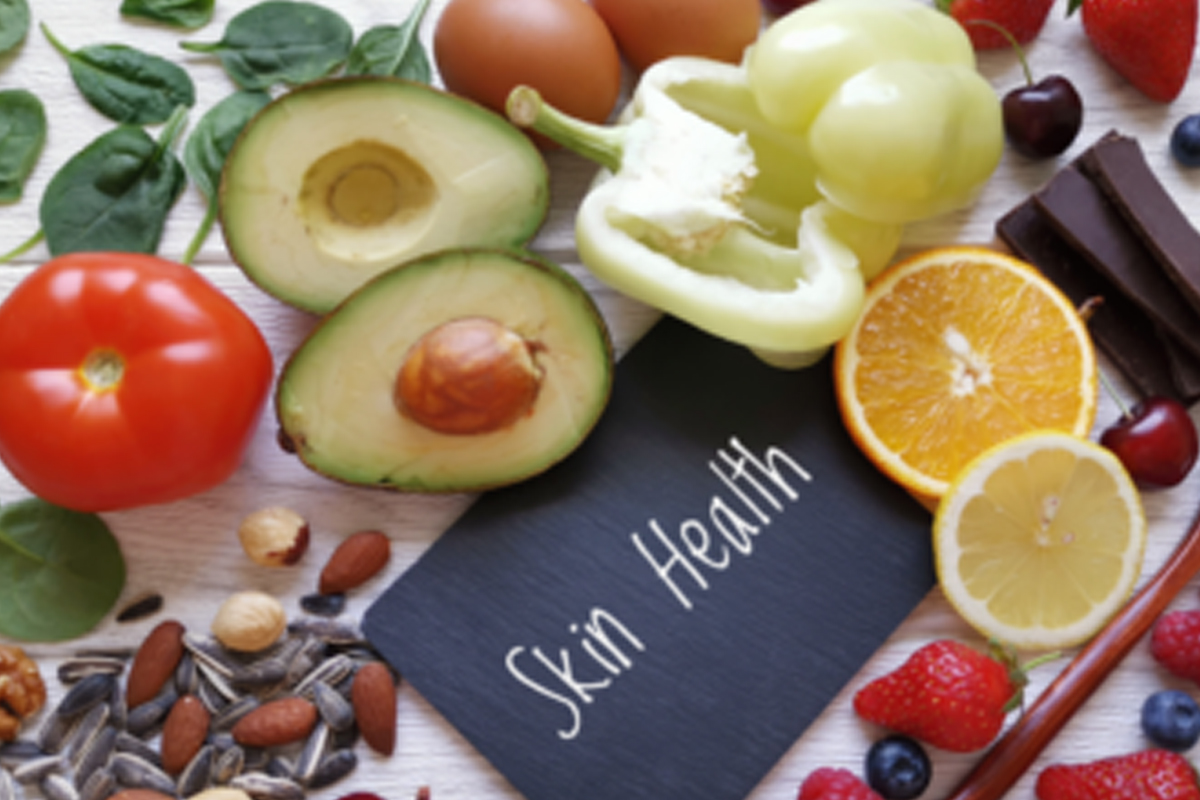Your skin’s health is a reflection of your overall well-being, and what you eat plays a crucial role in achieving and maintaining healthy skin. This article explores the intricate connection between nutrition and skin health, highlighting the key nutrients and foods that can nourish your skin from within.
1. The Impact of Diet on Skin Health:
Your dietary choices have a direct impact on your skin’s appearance and vitality. Certain nutrients and compounds found in foods support collagen production, provide antioxidant protection, and reduce inflammation, all of which contribute to healthy skin. Conversely, an imbalanced diet lacking essential nutrients can lead to skin issues such as dryness, dullness, and acne.
2. Key Nutrients for Healthy Skin:
- Antioxidants: Vitamins A, C, and E, along with other antioxidant compounds found in fruits, vegetables, nuts, and seeds, protect the skin against damage from free radicals and help maintain a youthful appearance.
- Omega-3 Fatty Acids: These healthy fats found in fatty fish, walnuts, flaxseeds, and chia seeds have anti-inflammatory properties, reducing skin redness and promoting a more even complexion.
- Vitamin C: Besides being an antioxidant, vitamin C is crucial for collagen synthesis, providing structure and elasticity to the skin. Citrus fruits, berries, kiwi, and bell peppers are excellent sources.
- Zinc: This mineral aids in wound healing, controls oil production, and supports immune function, contributing to clear and healthy skin. Foods like oysters, legumes, nuts, and whole grains are good sources of zinc.
3. Foods for Healthy Skin:
- Colorful Fruits and Vegetables: Berries, spinach, kale, carrots, and tomatoes are rich in vitamins, minerals, and antioxidants that protect and nourish the skin.
- Healthy Fats: Incorporate sources like avocados, olive oil, nuts, and seeds to provide essential fatty acids for supple and moisturized skin.
- Probiotic-Rich Foods: Fermented foods such as yogurt, kefir, sauerkraut, and kimchi support a healthy gut microbiome, which can influence skin health and reduce inflammation.
4. Hydration and Skin:
Proper hydration is essential for skin health. Drinking an adequate amount of water helps maintain skin elasticity, supports detoxification, and keeps the skin hydrated and plump.
Conclusion:
Nourishing your skin from within through a well-rounded and balanced diet is crucial for achieving and maintaining healthy, glowing skin. By incorporating antioxidant-rich foods, omega-3 fatty acids, vitamin C, zinc, and staying hydrated, you can promote skin health and address common concerns. For personalized guidance on optimizing your nutrition for vibrant and radiant skin, consult with a registered dietitian.
References:
- Danby, F. W. (2010). Nutrition and aging skin: sugar and glycation. Clinics in Dermatology, 28(4), 409-411.
- Schagen, S. K., Zampeli, V. A., Makrantonaki, E., & Zouboulis, C. C. (2012). Discovering the link between nutrition and skin aging. Dermato-Endocrinology, 4(3), 298-307.
- Boelsma, E., Hendriks, H. F., & Roza, L. (200
